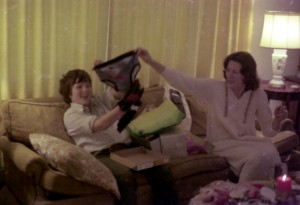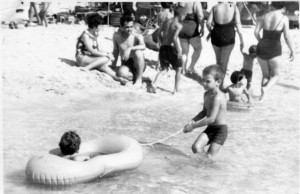I met Lynette on Twitter some time ago when looking to expand my writing universe. What immediately grabbed me was her direct approach in providing actually useful answers to such questions as “How do I grow my list of followers?”. I decided to do a question and answer session with her.
Where are you from?
New York. It took years for me to adjust to life in New England, but I’ve come to appreciate it.
What’s the latest news?
Interest in autobiographical writing is expanding enormously, so I’m teaching it in more and more places.
A revised edition of my interactive booklet, Polish and Publish will be released later this winter.
I’ll be turning over my memoir, My Mother’s Money, to a professional editor at the end of January 2012. (Sighs of relief.) I’m a writing instructor and oft-published writer, but I wouldn’t dream of calling a book finished until it had been edited by a professional at least two times. Editors see weaknesses in the manuscript that the author can’t spot.
When did you first consider yourself a writer?
Probably since college professors singled out my writing ability and enrolled me in a special program for so-called “gifted” writers.
What inspired you to write your first book?
Writing my memoir resulted from knowing I had an unusual, suspenseful experience that would grip readers. People who hear the story say, “Wow! So then what happened?”
The other memoir I’m writing is about working for 11 bosses in 11 years at a single institution.
Is there a message in your book that you want readers to grasp?
To rise above the hundreds of thousands of good writers out there requires skill and resources. If a book isn’t getting readers, it might not be the fault of the story, but the way the story’s written.
For example, one of my students with a degree in literature is writing a mystery novel. He writes well, and the story’s got potential. But he opened with long descriptions. He didn’t know how to construct strong, tight scenes. He gave too much irrelevant information and had no idea how to build tension or avoid redundant language.
That’s what learning the craft is about.
What books have most influenced your life?
Perhaps surprisingly, two that come to mind are The Man Who Loved Only Numbers and Deep Time. I’m captivated by cosmology—mathematical and scientific explorations of the origin, properties, and probable fate of the physical universe.
What books are you reading now?
77 Reasons Why Your Book Was Rejected, by Mike Nappa, an author, agent, and editor. I consider it a “must read.”
I recently finished The Memoir Project and Dirty Secrets, a very well-written memoir. I reread a lot of books by authors I love (like Barbara Pym, Georges Simenon, and Natalia Ginzburg), and books about writing memoirs and life stories.
Are there any new authors that have grabbed your interest?
I’ve got a couple of students whose writing blows me away. One woman read the class the opening of her memoir about a hoarder. It was atmospheric and suspenseful. That’s hard to pull off in 500 words, but she did it.
A poet in the same class just started writing poetry 3 years ago at the age of 86. He’s so good he’s already been published numerous times.
What both these writers (and all really fine writers) have in common is power in their writing, that ability to deeply engage readers.
Has your family been supportive?
I married into an incredibly generous, supportive, loving family.
Do you see writing as a career?
Writing has always been a central part of my professional work. After I left my last full-time job, I began helping other writers, and I love it.
If you had to do it all over again, would you change anything in your latest book?
What a question! I might have targeted Polish and Publish to more experienced writers. They seem open to improving their craft. New writers often don’t realize their writing needs improvement.
Can you share a little of your current work with us?
A sample from My Mother’s Money? Hmmm. I often consider posting a fragment on my blog. But I’m ambivalent about exposing the story before it’s finished. (But I’m glad you asked!)
Who is your favorite author and what is it that really strikes you about their work?
Barbara Pym. She manages to contain a world in just a short phrase. My husband can do that, too—and he’s not a writer.
Is there anything you find particularly challenging in your writing?
Choosing the best structure for a book. I could do a whole interview on that topic alone.
Do you have any advice for other writers?
To experienced writers I say, keep doing whatever somersaults and contortions you’re doing to make good writing happen.
For more information, and to read Lynette’s articles, please visit her website at http://lynettebentonwriting.com


